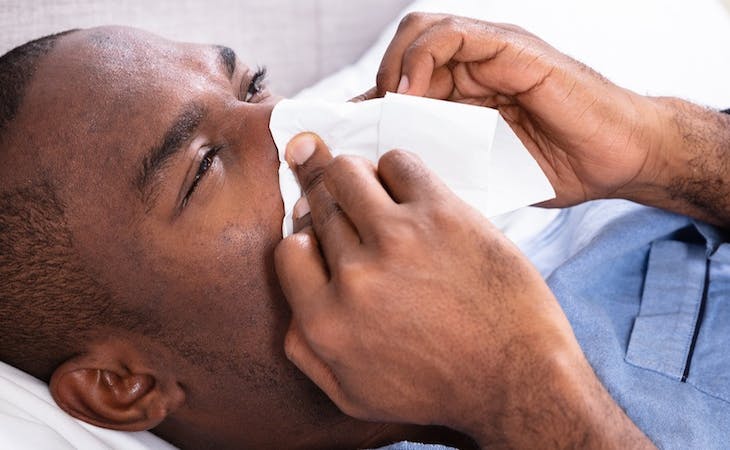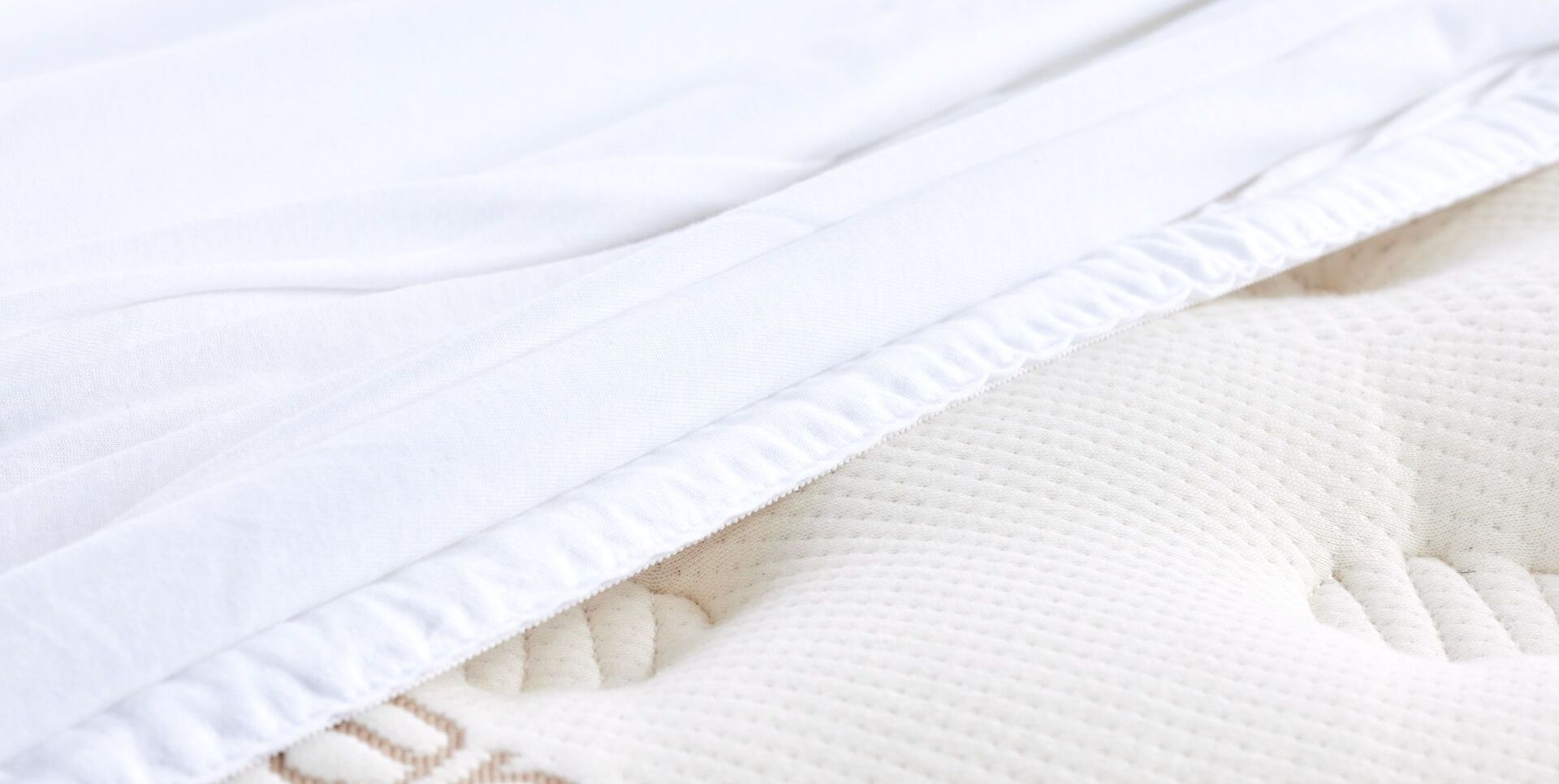Allergy season is officially here—and the symptoms that come along with it, like nasal congestion, sneezing, and itchy, watery eyes—can make it harder to get a good night’s sleep. The good news is, by making a few changes to your nighttime routine, it’s possible to catch those much-needed Z’s this season.
Here, we’ve rounded up our best advice for sleeping soundly when you have allergies.
Find the right allergy meds
First things first: Figure out what you’re allergic to so you can come up with an effective treatment plan (if you haven’t done so already). “Start by seeking an evaluation with an allergist to find out exactly what you’re allergic to and what options are available,” Flavia Cecilia Lega Hoyte, MD, allergist, immunologist, and assistant professor at National Jewish Health in Denver, tells Everyday Health.
Common treatment options for allergies include antihistamines, steroid nasal sprays, and nasal decongestants. Always check with your doctor before adding a new medication to your routine.
Take a nighttime shower
If you’re a morning shower person, then you may want to rethink your schedule. Showering at night is a better choice for allergy sufferers since it will help to get pollen out of your hair and off your body—meaning you won’t bring the common allergen into your bed. “The pollen, dust, and pollution in your hair and skin can seriously irritate allergies and asthma,” Amy Shah, MD, tells She Knows.
Switching to nighttime showers benefits your partner too. “Whatever you carry on your body—fragrance, toxins, allergens—can adversely affect your partner, especially if they have allergies or asthma,” explains Shah.
As a bonus, the rapid drop in body temperature after a shower naturally makes you drowsy, which may be especially helpful if you have insomnia.
Deep-clean your bedroom
Allergy season and spring cleaning season are one and the same—so use this time to kick allergens that have built up in your bedroom to the curb. “People often don’t see accumulated dust bunnies until they move or redecorate, because these balls of dust, hair, and other debris form in dark corners and under furniture,” says RJ Patel, owner of Prestigious Cleaning Team in Kennesaw, Georgia.
Start the cleaning process by moving furniture out of the way, then dust, sweep, and vacuum to get at allergens that might be hidden in your bedroom. Don’t forget to clean under your bed and dust off oft-overlooked items like lampshades. Keep up with these cleaning habits weekly to maintain an allergy-free bedroom.
Your mattress and bedding should be cleaned regularly as well. Give your mattress a once-over with your vacuum to suck up dust, dust mites, and crumbs—and encase it in an allergy-proof mattress protector. (Here is more advice for spring-cleaning your mattress.) If your mattress is past its prime, check out our guide to organic mattresses to find a new one that’ll help keep allergies at bay.
When it comes to washing your sheets, it’s best to do so in hot water (we’re talking 130 degrees Fahrenheit), changing them out once a week or every other week. Avoid line-drying them because this will expose them to allergens.
Clear out your sinuses
Stuffy nose keeping you awake? Clearing out the congestion before getting into bed will help you feel better. “Before you go to sleep, the most effective way to clear your nasal and sinus passages is with irrigation such as a neti pot,” says Darria Long Gillespie, MD, emergency room doctor and author of Mom Hacks. If a neti pot is uncomfortable, try a nasal saline spray, she suggests. Oh, and that nighttime shower will also help open up your nasal passages before bed, according to the National Sleep Foundation.
Raise your head
Elevating your head and chest in bed will reduce post-nasal drip in the back of your throat so you don’t spend the night coughing, says Long Gillepsie. A pile of pillows, a wedge pillow, or an adjustable base are all good options for raising your head in bed. (Learn why drooling could be a sign of seasonal allergies.)
Improve your bedroom’s air quality
According to the American Academy of Allergy, Asthma, and Immunology (AAAAI), it’s best to keep the humidity level in your bedroom between 40%-50%. This is something you can monitor with a hygrometer, a digital humidity meter. Sleeping with the A/C or dehumidifier on can help remove excess moisture in the air and provide relief from mold, mildew, and dust mite allergies.
“A dehumidifier can improve air quality,” Eric Ball, spokesperson for Lowe’s, tells the Washington Post. Ball suggests looking for a dehumidifier with antimicrobial technology—this will discourage bacteria growth in the water collection bucket.
Keep pets out
The proteins in a pet’s dander, skin, saliva, and pee can cause an allergic reaction or make asthma symptoms worse in some people, notes the AAAAI. Plus, pet hair or fur can collect outdoor allergens, like pollen and mold spores, says Russell Hartstein, pet expert and CEO of Los Angeles celebrity dog training company Fun PawCare. That’s why, if you suffer from allergies, you’ll want to consider setting up boundaries for your cat or dog.
“If your respiratory allergy symptoms are triggered by pet dander, keep all pets out of the bedroom,” Hoyte tells Everyday Health. “A lot of people will tell me they don’t let their pets sleep in bed with them, but upon further discussion, it comes up that the pet does spend all day in their bedroom.” It’s essential to keep your bedroom pet-free day and night to prevent animal dander from ruining your sleep, adds Hoyte. (Here’s how to find the best pet bed for your furry friend.)
Want more advice for sleeping better with allergies? We’ve put together this handy list of articles just for you:
- 5 Ways to Allergy-Proof Your Bedroom This Spring
- How to Allergy-Proof Your Child’s Bedroom
- Why the Change of Seasons Disrupts Your Sleep
- What to Look for in a Mattress if You Have Allergies
- The Best Bedding for Allergies





